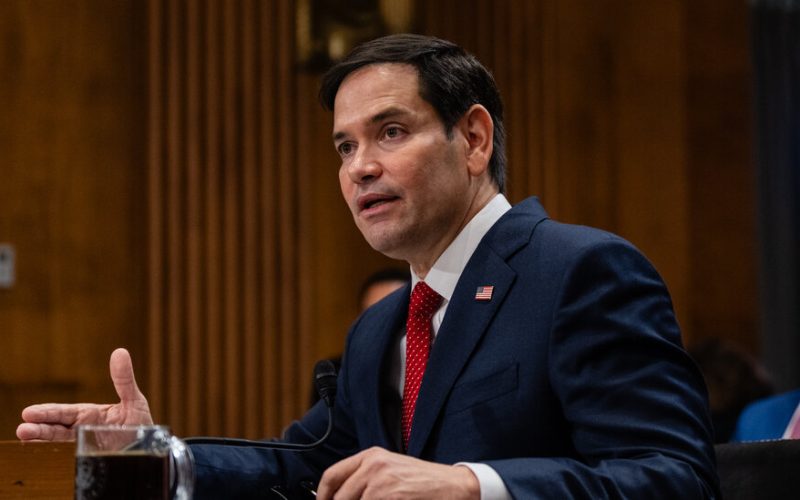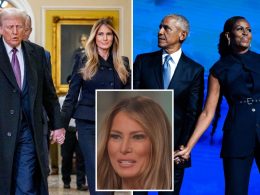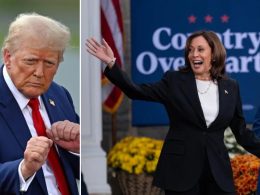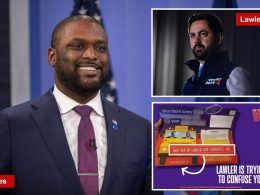The Senate confirmed Senator Marco Rubio, Republican of Florida, on Monday as America’s 72nd secretary of state, putting a former political rival of President Trump at the helm of American diplomacy.
Mr. Rubio, 53, was unanimously confirmed in a 99-to-0 vote, becoming the first Latino to occupy the job and Mr. Trump’s first cabinet secretary to be confirmed.
In his last act as a sitting senator, Mr. Rubio voted for himself, giving the Senate clerks a thumbs up as colleagues from both parties applauded.
Mr. Rubio’s mainstream views and friendly relations with Democrats paved the way for the unanimous vote. Senator Chuck Schumer, the Democratic leader, said beforehand that while he disagreed with many of Mr. Rubio’s positions, “it is important for the new administration to have a Senate confirm its secretary of state as soon as possible, so I’ll vote yes.” Every Senate Democrat followed suit.
As he replaces Antony J. Blinken in the job, Mr. Rubio confronts a daunting list of foreign policy tests. They include the war in Ukraine, a fragile cease-fire in Gaza and, in what Mr. Rubio calls the century’s defining challenge, China’s global ambitions.
But perhaps his biggest hurdle will be managing his relationship with Mr. Trump, whose temperament and worldview are very different from his own. Over three terms as a senator, Mr. Rubio was known for his hawkish foreign policy views with a heavy emphasis on human rights. Mr. Trump is a skeptic of foreign entanglements and takes a transactional approach to the world.
Senator Jim Risch, Republican of Idaho, the top Republican on the Senate Committee on Foreign Relations, called Mr. Rubio “a principled, action-oriented chief diplomat” capable of taking on American adversaries like Russia, China and Iran.
Foreign diplomats will also closely study the relationship between the president and Mr. Rubio, given that they clashed with memorable bitterness as rivals in the 2016 Republican presidential primaries. Mr. Trump was never in sync with his first secretary of state, Rex W. Tillerson, and fired him over social media after a little more than a year in the role.
Mr. Rubio was born in Miami in 1971 to parents who left Cuba for the United States in 1956, shortly before Fidel Castro took power in the island’s communist revolution. His father worked as a bartender and his mother as a hotel housekeeper, and the family spent several years in Las Vegas before returning to Miami. Mr. Rubio graduated from the University of Florida in 1993 and then earned a law degree from the University of Miami. He served in the Florida House of Representatives, including as its speaker, from 2000 to 2008.
Mr. Rubio then won a 2010 election for Senate and arrived in Washington amid talk that an energetic young Latino from Florida could make a formidable presidential candidate. He made an early name as a proponent of bipartisan compromise on immigration and promoted an interventionist U.S. foreign policy with a special distaste for repressive dictatorships like the one that Mr. Castro imposed on his parents’ native Cuba.
But when he sought the presidency in 2016, he met a roadblock in the form of Mr. Trump, who called him a scripted Washington insider and ridiculed his stature with the nickname “Little Marco.” Mr. Rubio’s arguments that Mr. Trump was unsuited for the presidency fell flat.
But Mr. Rubio became a defender of Mr. Trump and continued to hone expertise as a member of Senate committees on foreign relations and intelligence. He also earned the respect of his Democratic colleagues, including the senior Democrat on the Senate Foreign Relations panel, Jeanne Shaheen of New Hampshire.
“While we may not always agree, I believe he has the skills, knowledge and qualifications to be secretary of state,” Ms. Shaheen said of Mr. Rubio before voting to confirm him. “Given the uncertainty around the globe right now, it is in America’s interest not to skip a beat, and to fill this role immediately.”
At his confirmation hearing earlier this month, he pledged to take a more “realistic” view of American interests abroad. He also called for ending the war in Ukraine, expressed strong support for Israel, and said that countering Chinese power would be among his top priorities.
Mr. Rubio stopped short at his hearing of backing Mr. Trump’s talk that the United States should purchase or even seize Greenland. But as senators congratulated Mr. Rubio during the vote, several quips about the Arctic territory, which is controlled by Denmark, could be overheard from the gallery above.








